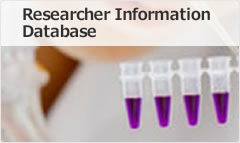Home > Subjects and Departments > Graduate School of Medicine > Graduate School of Nursing > Cancer Nursing
Main content starts here.
Updated : September 30, 2022
Cancer Nursing
Member
Tomi Tanaka(Professor)
Shigeaki Masuda(Associate Professor)
Overview
There are two nursing courses in the domain of oncology nursing: Thesis and Advanced Practice with the following learning objectives:
1. Acquiring knowledge of concepts and theories that form the basis of cancer nursing and related studies, and learning about the current status and challenges of cancer care.
2. Identifying the challenges of support for cancer survivors and their families to maintain optimal health conditions; clarifying related phenomena; and scientifically exploring nursing practice and health care to resolve such challenges, as well as nursing roles in team medicine.
Particularly, in the Advanced Practice course, students learn about the latest findings on the pathophysiology, diagnosis, and treatment of cancer, concepts and theories that form the basis of cancer nursing, and the current status and challenges of cancer care, while examining the clinical challenges faced by cancer survivors and their families. Furthermore, in clinical training to acquire the ability to think about the entire care system as an advanced practice nurse, students carry out their roles in direct and excellent patient care that integrates care and cure, consultation, and ethical coordination for cancer patients and their families with complex health issues. Those who have completed this course are qualified to take the Japanese Nursing Association Advanced Practice Nurse Education Course (Certified Nurse Specialist) Licensure Examination.
In research, students identify problems faced by cancer survivors and their families, and scientifically explore nursing practice and health care to resolve such problems, nursing roles in team medicine, and nursing education. Specifically, in Chemotherapy Nursing as a CNS subspecialty, students conduct studies on support for working cancer patients and cancer patients with concomitant diabetes, delirium during cancer treatment and nursing interventions to prevent it, and educational interventions for clinical nurses.


















 Postal Code:634-8521 Address:840 Shijo-Cho, Kashihara, Nara, Japan
Postal Code:634-8521 Address:840 Shijo-Cho, Kashihara, Nara, Japan